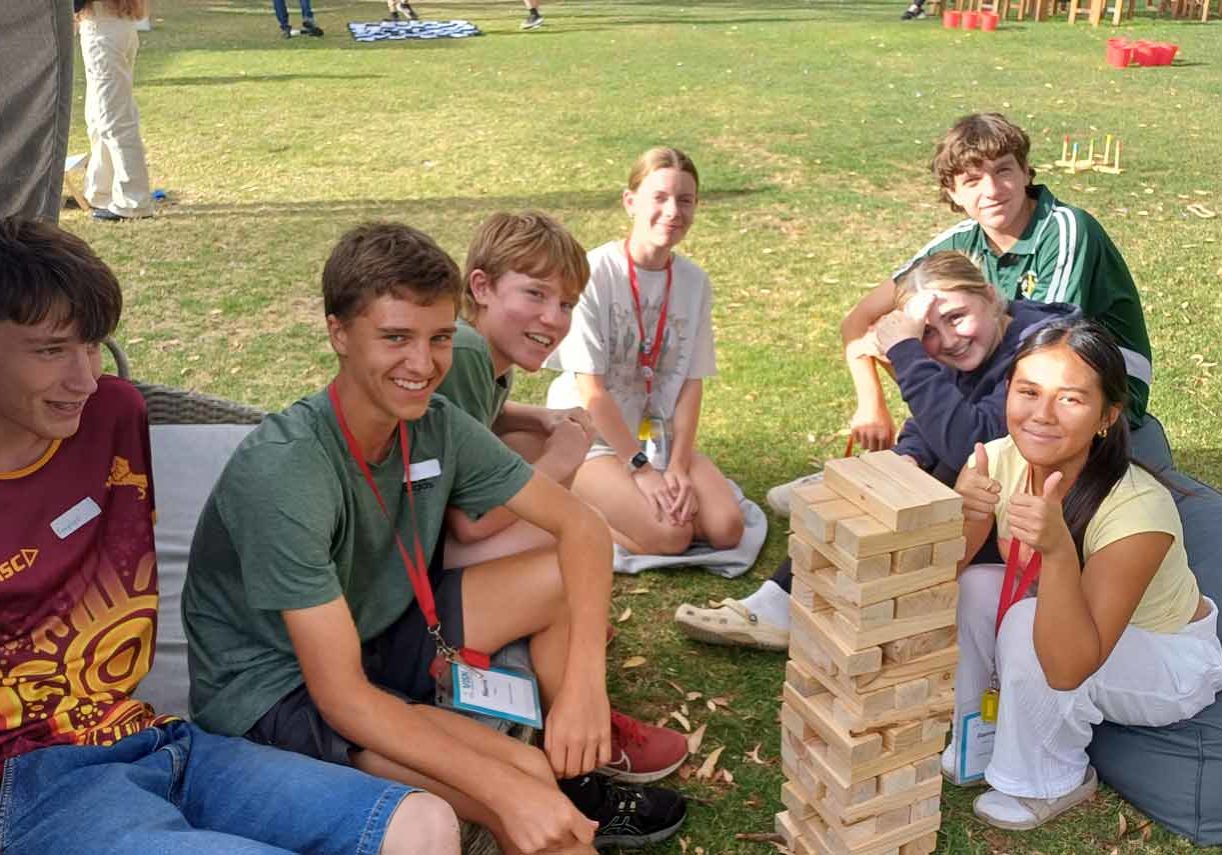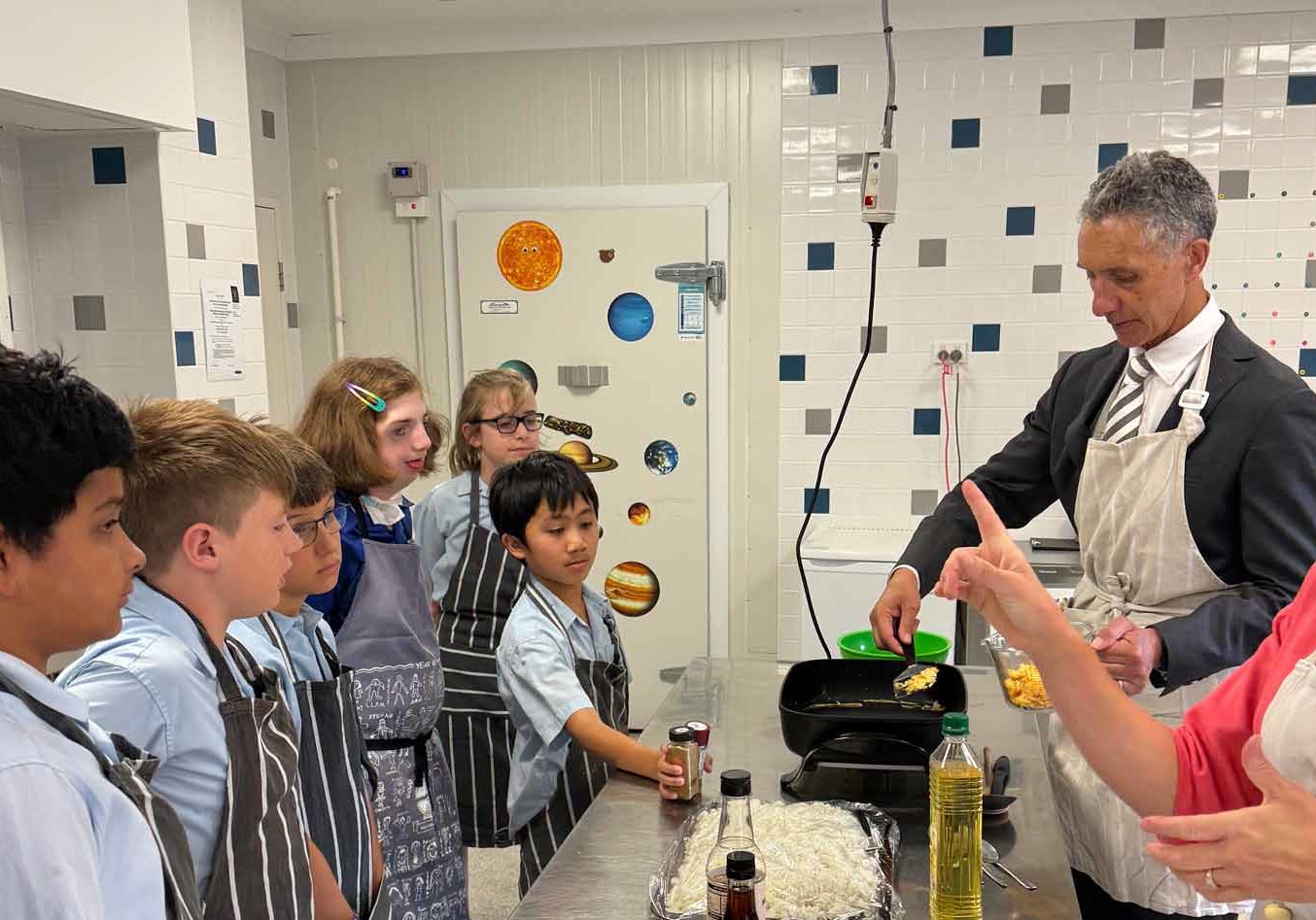Multilingual Libraries at Our Lady of Lourdes celebrate heritage, promotes learning
29 May 2024

Reflecting the multicultural community in their school, Our Lady of Lourdes Primary School have created libraries in each of their kindergarten to Year 6 classrooms, stocked with multilingual books.
The mini libraries, launched in May, provide access to a diverse range of literature and resources in multiple languages. The school has the fifth highest percentage of language background other than English students in all Catholic Education WA schools and its’ staff hope this resource will help students explore different cultures, improve
language skills, and celebrate linguistic diversity.
Students shared their excitement at the new recourse with Joshua, Year 4 saying:
“Having a multicultural library in our school means that we all get to learn different languages. Also, if someone doesn’t know English, they can learn how to speak it.”
Sebastiano, Year 4 added, “The good thing about our new classroom library is that children from other countries can read books in their home language and not feel left out. I think this is important. I can also pick up a book from another culture and this will help me learn new languages. The library space is a calm area where I can read and enjoy a book.”
Faith, Year 6 said, “New students to our school can learn in their home language and other students can read in their own language or a different language. I’m happy to be at OLOL because I’m not sure if other schools have these types of books.”
“It makes me happy because we get to celebrate our different cultures through books. I also enjoy dressing in my cultural dress because I don’t get the opportunity to do it that much,” Jennifer, Year 6 said.
“I’m happy because I don’t get many opportunities to see my home language represented in books in Australia. I feel comfortable and safe because sometimes I fear that I might lose my home language,” added Esther, Year 6 who recently arrived in Australia.
Principal Steve Blake hopes that by providing easy access of the books within each classroom, students will utilise them during times of reading in the classroom as well as take them home to share with their families.
“Our Multilingual Library Launch was a fabulous success. Students came to school wearing their cultural dress and were treated to cultural dance and having stories read to them in a variety of languages other than English.
“After a call out to our community, we were incredibly fortunate to have 14 parents, a grandmother and six staff members volunteer to read to the students. A senior student who read the opening prayer in Spanish, a group of African dancers performed their cultural dance and a student from Year 2 co-read a book in Portuguese with another classmate who translated the text in English.
“As our special guests and I walked around each class, students were captivated hearing stories portrayed to them in languages represented within their own class.
“Many of the parents who volunteered at the launch thoroughly enjoyed the experience and mentioned that they would love to come back and do it again. This will be something we explore and organise. We will also continue to upgrade and expand the library especially when new students arrive speaking languages not yet represented in our current collection.”
EAL/D Team Member Josephine Vivante said the project has taken about six months and staff will continue to stock the library for the rest of 2024 and beyond.
“I hope the resource will remind the migrant students and families of their culture, language and origins before coming to Australia, ‘Instilling a sense of pride of where they came from and form a sense of belonging to where they are now, within our school culture and our beautiful country.”
EAL/D School Leader Joanne Quesnel said the new space has created such a buzz with students.
“Many students were asking about their own home language, and where they could find the books. All the beautiful bilingual books, which have been labelled with the EAL/D language for quick and easy identification, have been covered and displayed in new bookshelves and reading nooks within classrooms.
“Reading bilingual books can enhance the reading experience and grow the vocabularies of all readers. Having a parent, grandparent or teacher read a book in another language adds excitement and assists in the exploration of another language and culture.”








